|
TRANSLATE THIS ARTICLE
Integral World: Exploring Theories of Everything
An independent forum for a critical discussion of the integral philosophy of Ken Wilber
SEE MORE ESSAYS WRITTEN BY DAVID LANE
SEE MORE ESSAYS WRITTEN BY ANDREA DIEM-LANE
Darwin’s Moral Sense
The Evolution of a Conscience
[What's Love Got to Do with It?]
David Lane and Andrea Diem-Lane
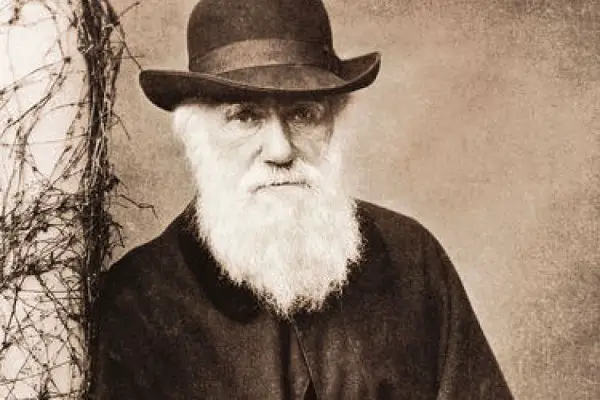
why Charles Darwin wrote his ‘The Descent of Man’
Darwin is not in Wilber’s camp, no matter how one tries to wiggle him into fit an “Integral” paradigm entrenched as it is with a directional aim for evolution.
Charles Darwin was taken aback when Alfred Russel Wallace, his friend and co-discoverer of evolution by natural selection, argued that human development (specifically consciousness and man’s higher sensibilities) were an exception to a materialist explanation. As Wallace argued in "The Limits of Natural Selection as Applied to Man" (1869/1870):
“It will, therefore, probably excite some surprise among my readers, to find that I do not consider that all nature can be explained on the principles of which I am so ardent an advocate; and that I am now myself going to state objections, and to place limits, to the power of "natural selection." I believe, however, that there are such limits; and that just as surely as we can trace the action of natural laws in the development of organic forms, and can clearly conceive that fuller knowledge would enable us to follow step by step the whole process of that development, so surely can we trace the action of some unknown higher law, beyond and independent of all those laws of which we have any knowledge. We can trace this action more or less distinctly in many phenomena, the two most important of which are--the origin of sensation or consciousness, and the development of man from the lower animals.”
Wallace believed that there must be a guiding intelligence (something transcending the known laws of physics) that could produce human awareness and morality. As Wallace stressed,
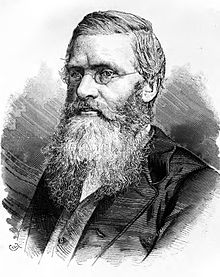 Alfred Russel Wallace
Alfred Russel Wallace
“It does not seem an improbable conclusion that all force may be will-force; and thus, that the whole universe, is not merely dependent on, but actually is, the WILL of higher intelligences or of one Supreme Intelligence.”
Darwin was somewhat surprised when Wallace warned him in his March 24, 1869 letter that he had doubts about how far natural selection could reach, particularly as exemplified in the higher cognitive abilities of Homo sapiens. Warned Wallace,
“In my forthcoming article in the Quarterly, I venture for the first time on some limitations to the power of natural selection. I am afraid that Huxley & perhaps yourself will think these weak & unphilosophical. I merely wish to know that they are in no way put in to please the Quarterly readers, -- you will hardly suspect me of that, -- but are the expression of a deep conviction founded on evidence which I have not alluded to in the article but which is to me absolutely unassailable.”
Darwin responded to Wallace just three days later on March 27, 1869, in a now famously cited rejoinder lamenting that
“I hope you have not murdered too completely your own & my child.”
In that same letter Darwin indicated to Wallace that he was also moving away from ascribing everything to just natural selection since
“I have lately i.e. in new Edit, of Origin been moderating my zeal, & attributing much more to mere useless variability.— I did think I wd send you the sheet, but I daresay you wd not care to see it, in which I discuss Nägelis essay on Nat. selection, not affecting characters of no functional importance, & which yet are of high classificatory importance. Hooker is pretty well satisfied with what I have said on this head.”
However, the fundamental difference between Wallace and Darwin was not merely over natural selection and how far it can extend but rather over a materialist vs. spiritual explanation of human’s consciousness and moral sensibility. Where Wallace was more and more comfortable with entertaining a supermundane purpose behind man’s mental powers, Darwin was focused on explaining everything, including consciousness, emotions, religion, and even love, by evolutionary processes.
As Darwin explained very clearly in the concluding summary of his groundbreaking text, The Descent of Man, and Selection in Relation to Sex (1871),
.jpg)
“The main conclusion arrived at in this work, namely, that man is descended from some lowly organised form, will, I regret to think, be highly distasteful to many. But there can hardly be a doubt that we are descended from barbarians. The astonishment which I felt on first seeing a party of Fuegians on a wild and broken shore will never be forgotten by me, for the reflection at once rushed into my mind—such were our ancestors. These men were absolutely naked and bedaubed with paint, their long hair was tangled, their mouths frothed with excitement, and their expression was wild, startled, and distrustful. They possessed hardly any arts, and like wild animals lived on what they could catch; they had no government, and were merciless to every one not of their own small tribe. He who has seen a savage in his native land will not feel much shame, if forced to acknowledge that the blood of some more humble creature flows in his veins.
For my own part I would as soon be descended from that heroic little monkey, who braved his dreaded enemy in order to save the life of his keeper, or from that old baboon, who descending from the mountains, carried away in triumph his young comrade from a crowd of astonished dogs—as from a savage who delights to torture his enemies, offers up bloody sacrifices, practices infanticide without remorse, treats his wives like slaves, knows no decency, and is haunted by the grossest superstitions. Man may be excused for feeling some pride at having risen, though not through his own exertions, to the very summit of the organic scale; and the fact of his having thus risen, instead of having been aboriginally placed there, may give him hope for a still higher destiny in the distant future. But we are not here concerned with hopes or fears, only with the truth as far as our reason permits us to discover it; and I have given the evidence to the best of my ability. We must, however, acknowledge, as it seems to me, that man with all his noble qualities, with sympathy which feels for the most debased, with benevolence which extends not only to other men but to the humblest living creature, with his god-like intellect which has penetrated into the movements and constitution of the solar system—with all these exalted powers—Man still bears in his bodily frame the indelible stamp of his lowly origin.”
Wallace, though a staunch advocate of organic evolution (who championed Darwin’s idea at almost every turn), held fast to a transcendent view where
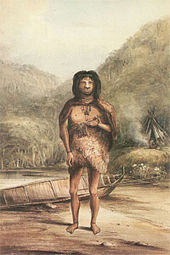 Tierra del Fuego native
Tierra del Fuego native
“While admitting to the full extent the agency of the same great laws of organic development in the origin of the human race as in the origin of all organized beings, there yet seems to be evidence of a Power which has guided the action of those laws in definite directions and for special ends. . . . Such, we believe, is the direction in which we shall find the true reconciliation of Science with Theology on this most momentous problem. Let us fearlessly admit that the mind of man (itself the living proof of a supreme mind) is able to trace, and to a considerable extent has traced, the laws by means of which the organic no less than the inorganic world has been developed. But let us not shut our eyes to the evidence that an Overruling Intelligence has watched over the action of those laws, so directing variations and so determining their accumulation, as finally to produce an organization sufficiently perfect to admit of, and even to aid in, the indefinite advancement of our mental and moral nature.” [See Alfred Russel Wallace, Article III, Quarterly Review v. 126, n. 252 (April 1869): 359-394, as cited by evolutionnews.org].
It is important to understand Wallace’s views since they highlight the historical context in which Charles Darwin wrote his magisterial The Descent of Man and Selection in Relation to Sex. In some very specific ways, Darwin was detailing why evolution could explain what Wallace thought was inexplicable by purely naturalistic methodologies. While Wallace would delve deeper into his spiritualist researches (exploring such topics as phrenology and séances), Darwin continued to look for physical explanations for why human psychology emerged as it did and for what benefit. He gave a preview of his overall viewpoint earlier in his newly updated book, The Origin of Species (6th edition), when he prophesized,
“In the future I see open fields for far more important researches. Psychology will be securely based on the foundation already well laid by Mr. Herbert Spencer, that of the necessary acquirement of each mental power and capacity by gradation. Much light will be thrown on the origin of man and his history.”
For Wallace, he looked for something beyond a purely Darwinian (to use Wallace’s own term for evolution by natural selection) explanation behind human thinking and feeling. As Stephen Montgomery, writing for the 200th birthday celebration of Charles Darwin, explains:
“By the late 1860s Wallace had become a Spiritualist, and perhaps linked to this, began to reject evolutionary explanations of human intelligence and abilities, instead invoking “the unseen universe of Spirit”. This, he claimed, had intervened in the normal run of natural selection three times; at the creation of life, the introduction of consciousness, and the generation of man’s mental capacities. Later in his life Wallace also believed in teleology - the idea that the development of the universe has had a direction, and that direction is towards the perfection of man. There are suggestions that Wallace also applied his teleology to evolution.”
“FOR THE LOVE OF DARWIN: BEYOND THE SELFISH GENE”
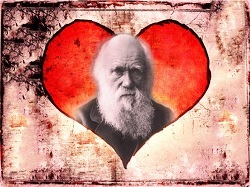
All of this serves, I believe, as a necessary preface to understand why Ken Wilber’s recent attempt ["For the Love of Darwin: Beyond the Selfish Gene" (Feb. 16, 2015)] to hijack Darwin’s naturalistic tendency and transfigure it is at best misleading and at worst intellectually dishonest.[1]
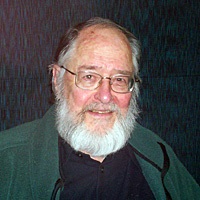 David Loye (b. 1926)
David Loye (b. 1926)
Much has been made, indeed an entire book (Darwin in Love), by David Loye, that Charles Darwin mentions the word “love” and “moral sensitivity” over ninety times in The Descent of Man and Selection in Relation to Sex but he only used the phrase “survival of fittest” twice, as if this was somehow a revelation of earth shattering proportions. In the prefatory remarks to Wilber and Loye’s recorded conversation for Integral Life, the editor opines,
“it becomes clear that something important is missing from our current discussions of Darwin and the evolutionary process. Well, good thing David and Ken are here to help set the record straight!”
The implication running throughout the interview is that somehow Darwin’s evolutionary views on morality and love have somehow been woefully neglected by more traditional scholars, since they (according to Wilber and his ilk) overly stress “The essentials about this is that the way Darwin is particularly interpreted today, is the Darwin of the "Survival of the Fittest" and "The Selfish Gene" and nothing but "it’s a jungle out there" and "it’s a vicious world" and "it’s nasty, brutish and short" and "that’s the way nature is built and therefore that’s the way humans are built as well”. And this has been used as a justification for all sorts of the most vile and wretched human behavior imaginable.”
Here Ken Wilber is creating a classic straw man argument, since evolutionists are not made out of a single cloth nor do the majority of them agree with justifying “vile and and wretched human behavior” because of Darwinism. In his overly sweeping generalization (a trait typical of him?). Wilber is setting up a false caricature of evolutionary biology and impugning the integrity of thousands of scientists who are deeply engaged in understanding human psychology in light of what Darwin and others have uncovered. Indeed, the whole field of sociobiology (later morphed under the more politically correct term, evolutionary psychology) is a serious extension of what Darwin outlined in The Descent of Man, and Selection in Relation to Sex.
Wilber even claims
“Darwin’s theory of what love was, and is, both in its most basic and intimate and widest possible sense. It was in the end to become a theory of love as the vital prime prime driver in the crucial moral evolution of our species. Which, in his version, was like a skyrocket into the dark sky of history. And so the role of love and moral sensitivity turns out to have quite a central place in Darwin’s overall theory, doesn’t it?”
Yet, Darwin’s invocation of love has absolutely nothing to do with Wilber’s ontological positioning of it in his Integral theory. It is sexual selection and survival of individuals within a nested network (family, friends, tribes) that is the real focus and prime mover behind why love arises in the first place. Contrary to Wilber presupposition, Darwin is not “reifying” love nor equating it in any way with Integral theory’s notion of Eros. Using Wilber and Loye’s own questionable methodology underlines this very point since the word sex appears nearly twenty times more than the word love in the The Descent of Man. Is word count really an insightful way to truly understand a theory? I think not, particularly when such word choices invariably come embedded within an informing and necessary context. Adolph Hitler’s Mein Kampf, for instance, to take just one stark example mentions the word love in some form over 40 times.
The real question is why Darwin raises the issue of love and ethics in The Descent of Man and the answer is very clear: he wants to explain how such higher emotions could arise through natural processes and are not due to some divine agency. The feelings of love, a highly developed conscience, and moral sensibilities are the results (not the initial causes) of naturalistic processes. Wilber hurriedly skips over this important caveat since Darwin’s materialist agenda (versus Wallace’s) doesn’t square with his teleological theory that--to quote Wilber directly—
“All of this, without exception, is driven by love.” [EnlightenNext, nr. 47, 2011, "The Cosmic Dimensions of Love"]
Contrary to Darwin’s understanding of how life evolves over time, Wilber posits
“there is no way in hell that the universe went from atoms to Shakespeare out of random stabs. This is an extraordinarily driven process.” [EnlightenNext, nr. 47, 2011, "The Cosmic Dimensions of Love"]
Wilber’s lame attempt to massage Darwin’s naturalist (and non teleological) understanding of why higher emotions arose in the first place in animals and later human beings is to deeply misread The Descent of Man, particularly when even those thinkers who advocate intelligent design don’t bastardize Darwin this badly.
As Benjamin Wiker, a Roman Catholic Ethicist writing for the Discovery Institute, lucidly explains,
“There is no reason for guesswork on Darwin’s views of morality. He set them out all too clearly in his Descent of Man (1871), the book in which he applied his theory of evolution to human beings. In it, Darwin very meticulously attempts to explain everything human as an effect of natural or sexual selection—everything including morality.”
Moreover, Wiker argues that
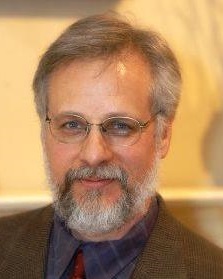 Benjamin Wiker
Benjamin Wiker
“The Descent was written, in part, to convince Darwin’s closest friends and evolutionary allies Charles Lyell, Asa Gray, and Alfred Wallace (his acknowledged co-discoverer of the theory of evolution by natural selection) that natural selection could explain all of human evolution. Lyell, Gray, and Wallace affirmed natural selection as a cause of human evolution, but an insufficient one to account for our moral and intellectual capacities. They believed the evidence of our qualitatively distinct moral and intellectual capacities implied a divine hand in the process. Darwin vehemently objected. He would not allow any divine causality at all. The Descent of Man was written to show Lyell, Gray, and Wallace that a God-less account, relying on random variation, natural selection, and sexual selection, could explain every aspect of human nature that might appear too elevated, too divine-like, to have been caused by natural processes alone. Morality was just one aspect Darwin attempted to explain, but it is important that it must be understood as an attempt to remove any need for God. Darwin’is strictly and exactly speaking, a God-less account of morality.”
Furthermore, it is disingenuous for Wilber to suggest that evolutionists have somehow ignored Darwin’s theory on morality when, in terms of historical trajectories, there has been an extensive literature and discussion on precisely why humans appreciate beauty, fall in love, and perform altruistic acts. Wilber, and not the neo-Darwinists he repeatedly mischaracterizes, is caught in a web of sloganeering when he reduces evolutionary thinking to a series of sound bites. Would Darwin, even at his most sentimental, agree with Integral Life’s summation of Wilber’s view on love’s role in evolution:
“Rather than just a mere human emotion, love is cast as a central driving force in the Kosmos—the force of Eros itself, pushing all of us along our inevitable return to Spirit.” ["Love and Evolution" audio, June 9th, 2010]
So why is Wilber trying to shoehorn Darwin back into his Integral agenda, when Darwin himself wouldn’see eye to eye with such a ploy? Charles Darwin, unlike colleague Alfred Russel Wallace wants to understand how natural selection, and in turn, sexual selection could naturally (but not with divine intent and certainly not with Eros guiding such from the beginning of time) would, under certain environmental conditions, produce moral sensibility. In an extended passage from The Descent of Man, Darwin explains how human sensitivity may have arisen:
“It deserves notice that, as soon as the progenitors of man became social (and this probably occurred at a very early period), the principle of imitation, and reason, and experience would have increased, and much modified the intellectual powers in a way, of which we see only traces in the lower animals. Apes are much given to imitation, as are the lowest savages; and the simple fact previously referred to, that after a time no animal can be caught in the same place by the same sort of trap, shews that animals learn by experience, and imitate the caution of others. Now, if some one man in a tribe, more sagacious than the others, invented a new snare or weapon, or other means of attack or defence, the plainest self- interest, without the assistance of much reasoning power, would prompt the other members to imitate him; and all would thus profit. The habitual practice of each new art must likewise in some slight degree strengthen the intellect. If the new invention were an important one, the tribe would increase in number, spread, and supplant other tribes. In a tribe thus rendered more numerous there would always be a rather greater chance of the birth of other superior and inventive members. If such men left children to inherit their mental superiority, the chance of the birth of still more ingenious members would be somewhat better, and in a very small tribe decidedly better. Even if they left no children, the tribe would still include their blood-relations; and it has been ascertained by agriculturists (4. I have given instances in my Variation of Animals under Domestication, vol. ii. p. 196.) that by preserving and breeding from the family of an animal, which when slaughtered was found to be valuable, the desired character has been obtained.
Turning now to the social and moral faculties. In order that primeval men, or the ape-like progenitors of man, should become social, they must have acquired the same instinctive feelings, which impel other animals to live in a body; and they no doubt exhibited the same general disposition. They would have felt uneasy when separated from their comrades, for whom they would have felt some degree of love; they would have warned each other of danger, and have given mutual aid in attack or defence. All this implies some degree of sympathy, fidelity, and courage. Such social qualities, the paramount importance of which to the lower animals is disputed by no one, were no doubt acquired by the progenitors of man in a similar manner, namely, through natural selection, aided by inherited habit. When two tribes of primeval man, living in the same country, came into competition, if (other circumstances being equal) the one tribe included a great number of courageous, sympathetic and faithful members, who were always ready to warn each other of danger, to aid and defend each other, this tribe would succeed better and conquer the other. Let it be borne in mind how all- important in the never-ceasing wars of savages, fidelity and courage must be. The advantage which disciplined soldiers have over undisciplined hordes follows chiefly from the confidence which each man feels in his comrades. Obedience, as Mr. Bagehot has well shewn (5. See a remarkable series of articles on 'Physics and Politics,' in the 'Fortnightly Review,' Nov. 1867; April 1, 1868; July 1, 1869, since separately published.), is of the highest value, for any form of government is better than none. Selfish and contentious people will not cohere, and without coherence nothing can be effected. A tribe rich in the above qualities would spread and be victorious over other tribes: but in the course of time it would, judging from all past history, be in its turn overcome by some other tribe still more highly endowed. Thus the social and moral qualities would tend slowly to advance and be diffused throughout the world.”
Several lines down from this passage, after adducing more evidence for the natural history for moral progression, Charles Darwin summarizes his theory thusly,
“Ultimately our moral sense or conscience becomes a highly complex sentiment—originating in the social instincts, largely guided by the approbation of our fellow-men, ruled by reason, self-interest, and in later times by deep religious feelings, and confirmed by instruction and habit.”
Ironically, Darwin is biologically prefiguring Nietzsche’more philosophical observation that “That which does not kill us makes us stronger.” Which in Darwin’sense simply means humans as a social animal were more likely to survive if they could bond together versus continually in-fighting. To what practical purpose does love serve if everything is destined to decay and die? The answer is simpler than we might wish to admit: it makes us commit. And that very act of committing has a survival value, particularly when pair bonding, family bonding, tribal bonding, and so on gives one greater resources than merely confronting the world alone.
Wilber and Loye’s contention that Darwin’s moral sense has somehow been buried or hidden from view is contradicted by decades of research in precisely this area. John C. Greene fifty-six years ago captured the essence of Darwin’s views on why humans developed a conscience in his book, The Death of Adam: Evolution and Its Impact on Western Thought:
“There is no question, Darwin continued, that man had strong social instincts, probably acquired at a very early period through the advantage they conferred on tribes possessing them. When to these instincts were added growing powers of reflection on past events and impressions, a moral sense would inevitably emerge [my italics.]. The individual would feel that he ought to obey the dictates of group sentiment; feelings of shame and guilt would follow if he did not. Thus he would acquire a conscience . . . .”
Love, in this context, acts as a cohesive glue, whether it be for mating, child rearing, or for larger family/tribal protection. None of this, of course, is all that surprising and Darwinian scholars from Huxley onwards have included such in their own respective theories.
This reminds me of a silly, but telling joke I heard in graduate school back in the 1980s about how increased populations alter one’outward behavior. What do 10 monkeys do in an elevator? Not much, just like humans, heads down or up, but not much looking around. Monkeys, and humans, tend to behave. Okay, what does 1 monkey do in an elevator? Anything he wants.
A conscience doesn’t arise in a vacuum but from group interaction, even if over time (like Chomsky’notion of language), we may have inherited a predisposition for it. In other words, almost all human beings are born with the capacity for self-reflection and for feeling a sense of doing something right and something wrong. But what we feel guilty about is to a large measure (perhaps with some interesting biological exceptions) sociologically variable. Here environmental conditions play a dramatic role and should never be underestimated, even if we champion underlying structural inclinations.
I originally critiqued Ken Wilber over evolution nearly 20 years ago[2], not because he wanted to champion his own version of intelligent (or is that love?) design, but because he completely misrepresented the current state of the theory.
Darwin is not in Wilber’s camp, no matter how one tries to wiggle him into fit an “Integral” paradigm entrenched as it is with a directional aim for evolution.
Charles Darwin in his Autobiography summarized his contrarian view precisely when he wrote,
“The old argument from design in nature, as given by Paley, which formerly seemed to me so conclusive, fails, now that the law of natural selection has been discovered. There seems to be no more design in the variability of organic beings and in the action of natural selection, than in the course which the wind blows.” (p. 50)
POSTSCRIPT
As I was writing this particular essay I happened to visit my local Huntington Beach library where I go thrice weekly for book hunting, since they have a wonderful used bookstore just inside the main entrance. But before I entered the building I decided to play my usual "Littlewood's Law of Miracles" game (based on the famous mathematician's pregnant supposition that we should expect the unexpected every 35 days on average, given the theory of large numbers). So I ruminated to myself, "Even though I have several fine editions of Darwin's The Descent of Man, I don't want to mark those up so I need a nice paperback version, preferably one with scholarly introductions and notes." As I was thinking this thought the very first book I came upon, almost as if it was waiting for me was Darwin's The Descent of Man in a nice paperback volume published by Princeton University Press with introductions by John Tyler Bonner and Robert M. May. But Littlewood was not yet done with me, as just below on the next shelf was John Greene's insightful 1959 volume, The Death of Adam: Evolution and Its Impact On Western Thought. I love these kinds of coincidences, but here I side again with Darwin on his views concerning design in nature and I apply it with equal measure to my intriguing book finds,
"There seems to be no more design in the variability of my book choices and of what I find than in the course of which my mind wanders."
Of course, I slightly jest, but finding meaning and purpose in what I discover in books is not dissimilar in its import than what we might project onto nature herself, which seems oblivious to our intentional desires and what we ultimately impute upon them.
NOTES
[1] Ken Wilber and David Loye, "For the Love of Darwin: Beyond the Selfish Gene", Feb. 16, 2015, www.integrallife.com; see: Frank Visser, "Duplicating Darwin: Ken Wilber's and David Loye's Misreading of Neo-Darwinism", Feb. 20, 2015, www.integralworld.net
[2] David Lane, "Wilber and the Misunderstanding of Evolution", December 2006, www.integralworld.net (originally published as "Critique of Ken Wilber, part two", Ken Wilber's Achilles' Heel, The Art of Spiritual Hyperbole, A Ten Part Series", dlane5.tripod.com, 1996.)
AUTHOR BIOS
 David Christopher Lane David Christopher Lane, Ph.D.
Professor of Philosophy, Mt. San Antonio College Lecturer in Religious Studies, California State University, Long Beach Author of Exposing Cults: When the Skeptical Mind Confronts the Mystical (New York and London: Garland Publishers, 1994) and The Radhasoami Tradition: A Critical History of Guru Succession (New York and London: Garland Publishers, 1992).  Andrea Diem-Lane Andrea Diem-Lane is a tenured Professor of Philosophy at Mt. San Antonio College, where she has been teaching since 1991. Professor Diem has published several scholarly books and articles, including The Gnostic Mystery and When Gods Decay. She is married to Dr. David Lane, with whom she has two children, Shaun-Michael and Kelly-Joseph. VIDEOS
|


.jpg)




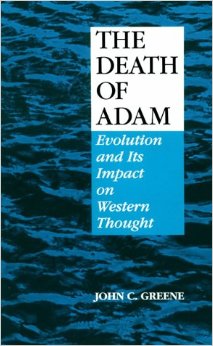
 David Christopher Lane, Ph.D.
Professor of Philosophy, Mt. San Antonio College Lecturer in Religious Studies, California State University, Long Beach Author of Exposing Cults: When the Skeptical Mind Confronts the Mystical (New York and London: Garland Publishers, 1994) and The Radhasoami Tradition: A Critical History of Guru Succession (New York and London: Garland Publishers, 1992).
David Christopher Lane, Ph.D.
Professor of Philosophy, Mt. San Antonio College Lecturer in Religious Studies, California State University, Long Beach Author of Exposing Cults: When the Skeptical Mind Confronts the Mystical (New York and London: Garland Publishers, 1994) and The Radhasoami Tradition: A Critical History of Guru Succession (New York and London: Garland Publishers, 1992). Andrea Diem-Lane is a tenured Professor of Philosophy at Mt. San Antonio College, where she has been teaching since 1991. Professor Diem has published several scholarly books and articles, including The Gnostic Mystery and When Gods Decay. She is married to Dr. David Lane, with whom she has two children, Shaun-Michael and Kelly-Joseph.
Andrea Diem-Lane is a tenured Professor of Philosophy at Mt. San Antonio College, where she has been teaching since 1991. Professor Diem has published several scholarly books and articles, including The Gnostic Mystery and When Gods Decay. She is married to Dr. David Lane, with whom she has two children, Shaun-Michael and Kelly-Joseph.